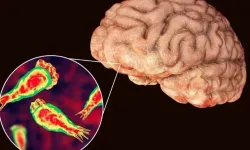Heart failure, also called congestive heart failure, is defined as a condition in which a weakened heart is unable to pump enough blood to meet the body's needs.
A study published in the European Journal of Heart Failure found that patients with high levels of a particular protein were more likely to die from the heart complication.
Neuropeptide Y, or NPY, is a chemical that ensures all function in the body: it also regulates brain activity and digestion. NPY can cause our heart to work too hard when small blood vessels in the muscle close. About a third of the 800 people who took part in the study (all at different stages of heart failure) were found to have higher levels of NPY.
The researchers found that over the three-year follow-up period, the risk of death due to a heart complication was 50 percent higher than for those with lower levels.
NPY should be tested alongside B-type natriuretic Peptide (BNP), the hormone used to diagnose heart failure, the researchers said.
Neil Herring, professor of cardiovascular medicine and consultant cardiologist at Oxford University, said: "The findings of this research are an exciting new development based on more than 10 years of collaborative research on this stress hormone. "We hope our research will benefit the growing number of patients living with the debilitating effects of heart failure every day. We will then investigate whether measuring very high levels of neuropeptide Y can affect whether patients can receive life-saving treatments such as ICDs (implantable cardioverter-defibrillators) before the blood test becomes available in five years' time."















